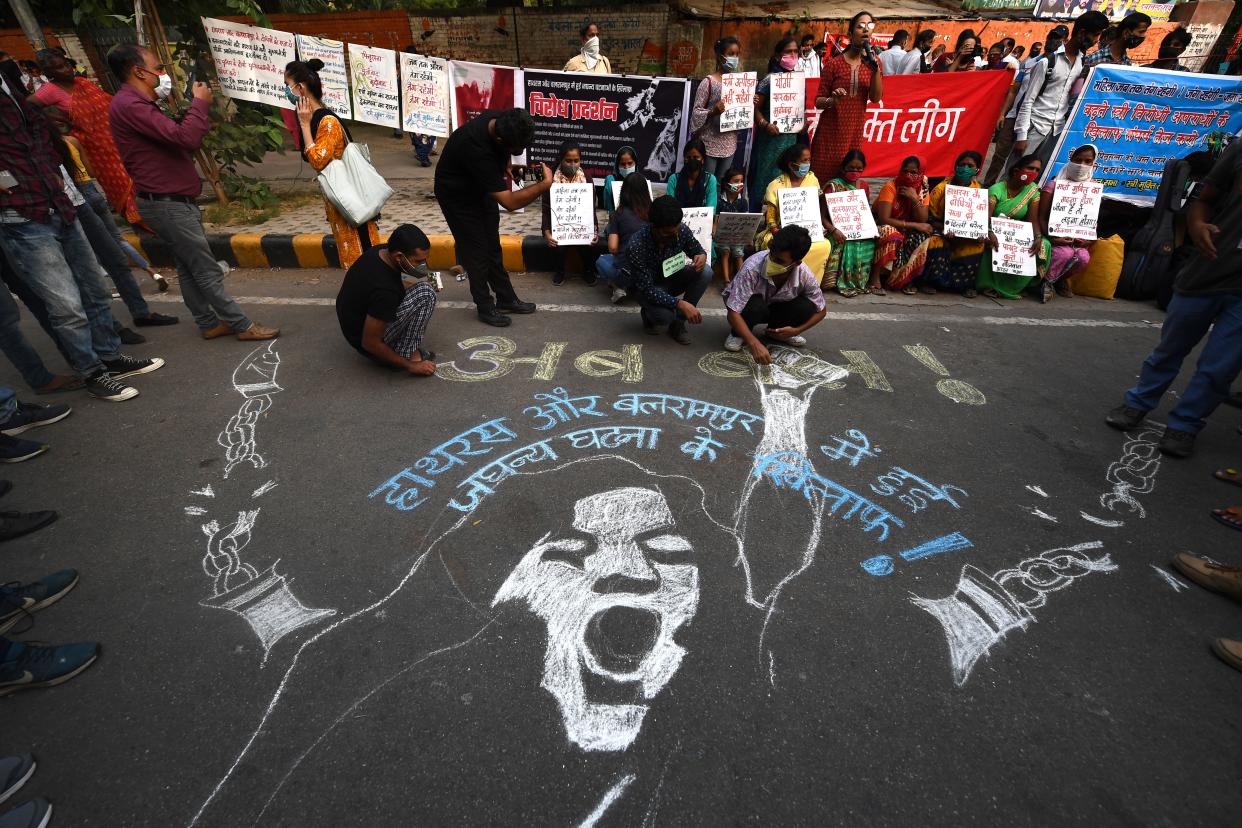Outcry after Indian court rules groping without removing clothes is not sexual assault

Demonstrators paint a floor mural as they protest against the alleged gang-rape and murder of a 19-year-old woman in Uttar Pradesh state
(Getty)The Supreme Court of India on Wednesday stayed a controversial judgment by another court which held that groping of a minor without “skin-to-skin” contact and without removing clothes is not “sexual assault”.
Attorney general KK Venugopal called the judgment by the Bombay High Court “very disturbing” and sought to file a petition against the order.
The ruling in question was given on 19 January by Justice Pushpa V Ganediwala of the Bombay High Court, who acquitted a 39-year-old man previously found guilty of sexually assaulting a 12-year-old girl by groping her under Section 7 (sexual assault) of the Protection of Children from Sexual Offences Act (POCSO).
“The act of pressing of breast of the child aged 12 years, in the absence of any specific detail as to whether the top was removed or whether he inserted his hand inside top and pressed her breast, would not fall in the definition of ‘sexual assault’,” Ms Ganediwala said.
"Considering the stringent nature of punishment provided for the offence, in the opinion of this court, stricter proof and serious allegations are required," she wrote.
The decision led to outrage across the country, with campaigners shocked at the judgment. Activists who have been working for decades to tackle sexual abuse against women and children said they would challenge the ruling.
The man was acquitted of a Section 7 offence which would otherwise have attracted a minimum punishment of three years in prison, though he has not been released and is expected to be charged with the lesser offence of molestation, punishable by a year’s prison term.
According to the girl's testimony in court, the man took her to his house in Nagpur, Maharashtra, on the pretext of giving her guava in December 2016. The accused touched the girl’s breasts and tried to remove her underwear, Justice Ganediwala recorded in her verdict.
Lawyers and activists who had earlier denounced the high court decision showed relief on Wednesday at the Supreme Court’s stay to the judgment.
“So glad for this, some of our cases could have been affected. Kudos to the AG (attorney general),” said Karuna Nundy, a lawyer at the Supreme Court of India. She earlier slammed the judges for passing the decision and said judgments like this “contribute to impunity in crimes against girls”.
Ranjana Kumari, director of the women’s rights non-profit Centre for Social Research, had called the initial judgment "shameful, outrageous, shocking and devoid of judicial prudence".
As the overall crime rate in India increased to 1.6 per cent in 2019, more than 400,000 crimes against women were registered – a significant jump of 7.3 per cent from 2018, according to federal National Crime Records Bureau data.
Read More
Indian police halt first interfaith wedding under new ‘Love Jihad’ law
Indian court bans ‘vulgar’ adverts even after watershed

